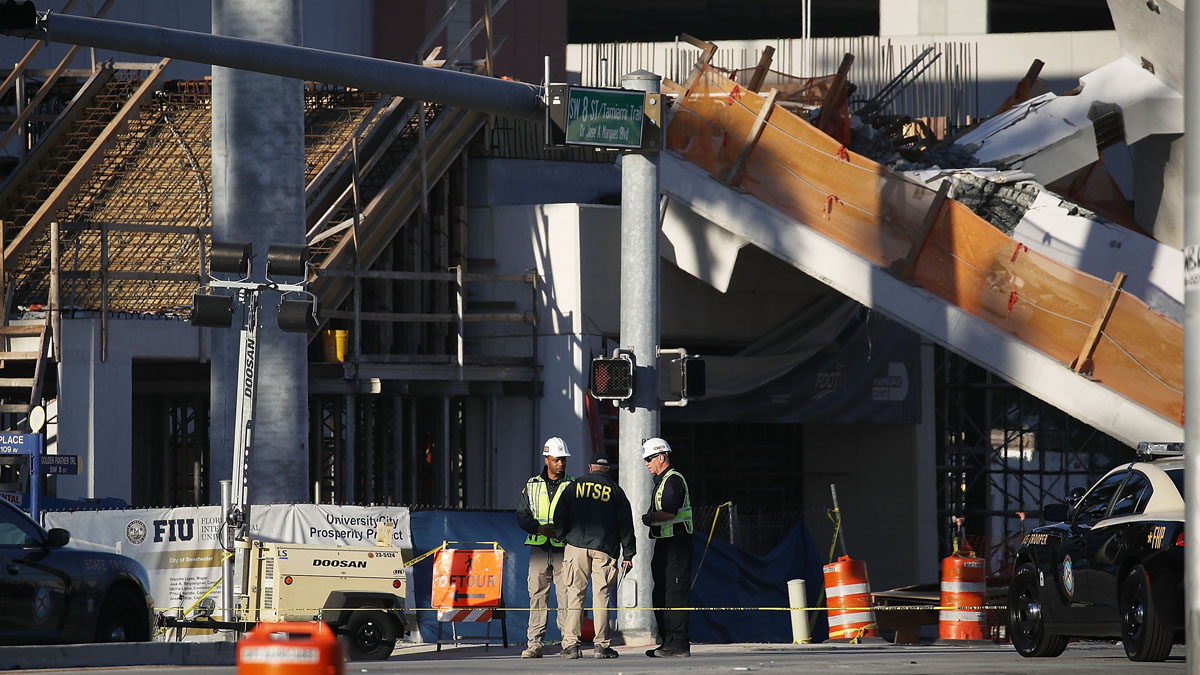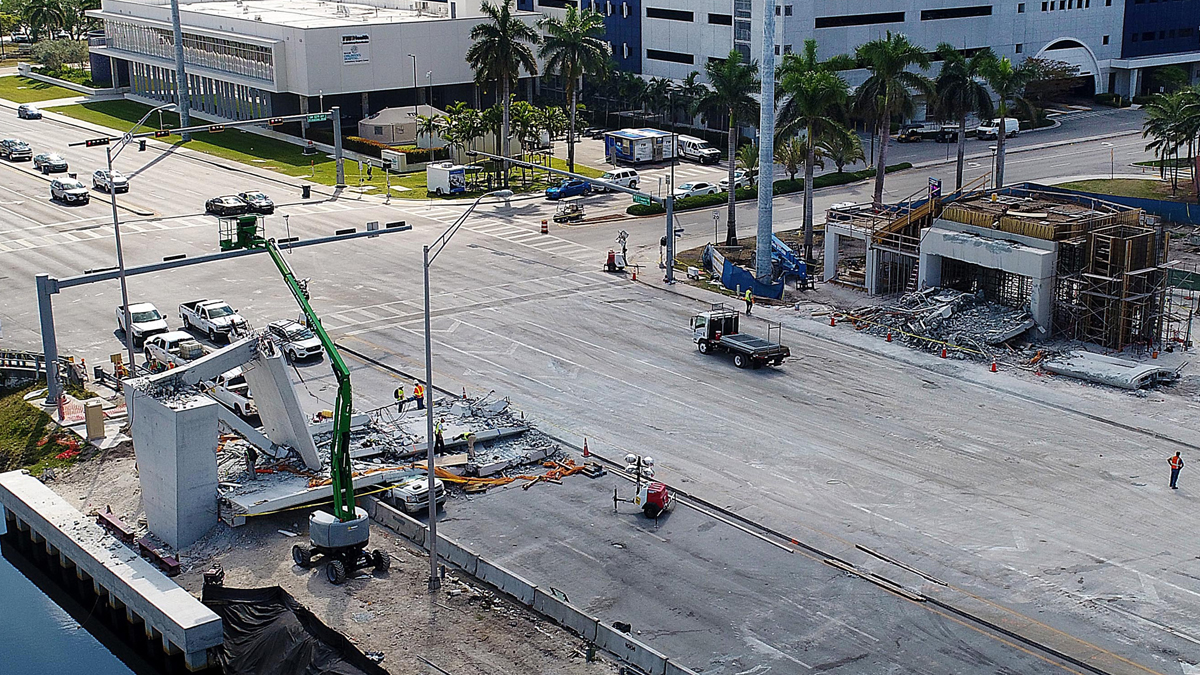Wednesday marks five years since the deadly collapse of a pedestrian bridge near the campus of Florida International University in southwest Miami-Dade that claimed the lives of six people.
The 174-foot-long pedestrian bridge collapsed while under construction on March 15, 2018. National Transportation and Safety Board officials later concluded the design firm underestimated the load of the bridge and overestimated its strength in a critical section that splintered.
The victims included five people who were sitting in the cars underneath the bridge while stopped at a traffic light: Alberto Arias, 53, Brandon Brownfield, 39, FIU student Alexa Duran, 18, Rolando Fraga, 60, and his partner Oswaldo Gonzalez, 57. Construction worker Navaro Brown, 37, was also killed in the collapse.
FIU BRIDGE COLLAPSE
Get South Florida local news, weather forecasts and entertainment stories to your inbox. Sign up for NBC South Florida newsletters.
Plans are in the works for a new bridge that will span the same location, crossing Southwest 8th Street at Southwest 109th Avenue. The goal of the bridge is to help make it safer for students and staff to cross from FIU’s main campus to residential towers and student housing located across Southwest 8th Street.
Construction is expected to begin early 2024 and last for about two years. A memorial plaque honoring the victims of the bridge collapse will be placed on the new bridge when it is constructed.
An Inspector General report released in 2020 by the U.S. Department of Transportation said expert bridge engineers within the Federal Highway Administration could have been tasked with reviewing plans for calculation errors, but they were not.
The prospect that disaster could have been averted emerges from the 34-page IG Report, "Gaps in FHWA’s Guidance and the Florida Division’s Process for Risk-Based Project Involvement May Limit Their Effectiveness," obtained by the NBC 6 Investigators.
It notes the Florida offices of the FHWA identified the FIU project involved "elevated risk," in part because the university had "questionable capacity to manage (the) project." It also noted the unique non-redundant concrete truss design added to the risks.
Despite those risks, the FHWA "Division area engineers did not consult the Division’s bridge engineer to assess risks on the FIU project, which includes a highly complex pedestrian bridge." Nor did it "perform detailed design or calculation reviews."
Had it done so, it is almost certain the fatal design errors that the National Transportation Safety Board attributed to FIGG Bridge Engineers would have been detected - because it was FHWA bridge engineers who discovered the errors for the NTSB as part of its post-disaster investigation.
Had the bridge been on the Interstate Highway System, rather than a US Highway, "guidance requires FHWA to review and approve preliminary plans."
But the audit found record keeping so deficient, it is unclear exactly what was done to review the FIU bridge designs. The IG found the project "had missing or confusing information, and included only vague descriptions" of what FHWA's Florida office planned to do to address those elevated risks.
Rather than do a detailed review of the bridge design and calculations, the FHWA Florida office focused on whether the project was eligible for federal aid, which the office said was typical for them.
The audit notes best practices by another government agency, the US Army Corps of Engineers, calls for them to "consult with technical experts—such as bridge engineers—on risk assessments when the projects include work in an expert’s subject matter area."



